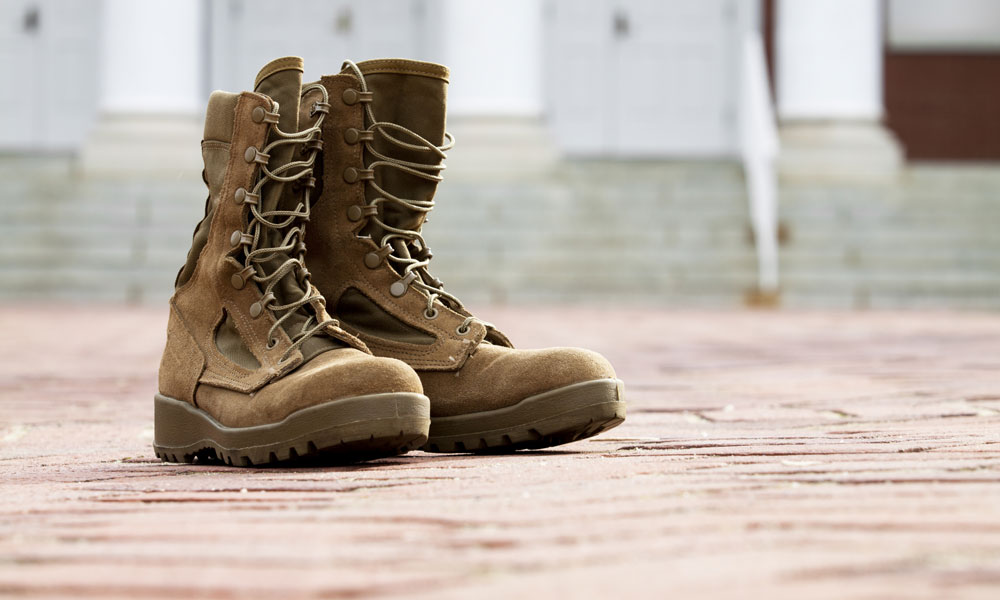
Nonprofits Help Put Boots on the Ground at Elite Schools
While Ivy League colleges and other liberal arts institutions struggle to integrate military veterans into the student body, nonprofits are working to ensure that there's a path from the military to elite higher education.
One of the biggest problems veterans face involves adjusting to civilian life after their tours of duty are over.
A good way to make that adjustment is to attend college. But it’s not always easy for vets to succeed in higher education: Tough admissions processes often prevent vets from attending elite colleges or universities, including Ivy League stalwarts like Yale and Dartmouth and “Little Ivies” like Wesleyan and Vassar. In fact, notes The New York Times, less than one half of 1 percent of of post-9/11 G.I. bill funding has gone to students attending Ivy League schools, and most of those funds went to those in graduate programs or to dependents of veterans. Some schools, such as Princeton and Harvard, have fewer than five veterans in their undergraduate student bodies.
But nonprofit groups—both national organizations and the campus variety—have been helping to change that. The Posse Foundation, a leadership development program that draws attention to students who may be overlooked during the traditional admissions process at highly competitive colleges, has started to focus on veterans in recent years.
Last year, the foundation started a program with Vassar College, and 11 vets took part in its first class. And this fall the foundation extended its partnership to Wesleyan University, which recently admitted 10 U.S. Armed Forces veterans.
The schools welcomed the help in bringing in a new type of student.
“Most liberal arts schools are struggling to bring in veterans,” noted Antonio Farias, Wesleyan’s vice president for equity and inclusion and Title IX officer, in The Wesleyan Argus. “For us, it’s critical. Our goal is to train future leaders of democracy. These are some leaders that just had a different trajectory.”
At Yale, a local group, the Yale Veterans Association, has helped maintain the school’s military tradition, which includes the creation of the first launching pad of the U.S. Naval Air Reserve, in 1916. In 2012, the ROTC program returned to campus after a 40-year absence.
But as the association’s Rob Cuthbert told the Times, the lack of a veteran presence at Ivy League schools represents an “exigent crisis,” especially as 1.4 million veterans don’t have bachelor’s degrees.
“A bachelor’s degree is a key tool for socioeconomic mobility in today’s economy,” Cuthbert said. “Enlisted veterans should not doubt that there are clear pathways to Ivy League and peer schools.”
(iStock/Thinkstock)






Comments